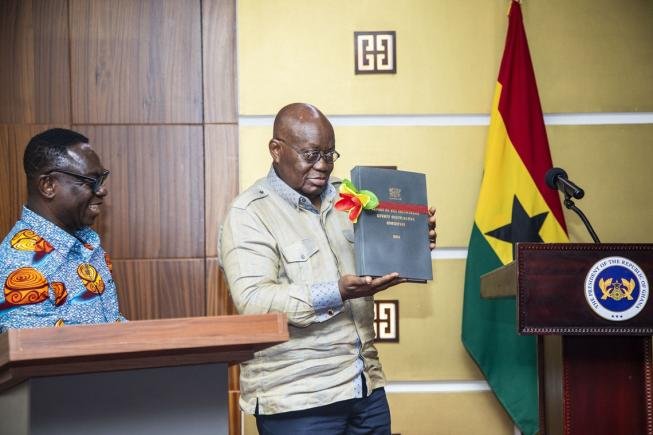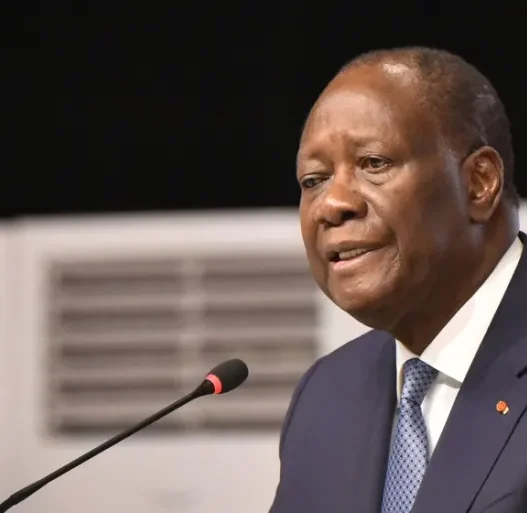The Constitutional Review Consultative Committee (CRCC) has submitted a groundbreaking report recommending the capping of ministerial and deputy ministerial appointments at 55 and limiting the number of elected Members of Parliament (MPs) to 277. The report, submitted to President Nana Addo Dankwa Akufo-Addo, seeks to streamline governance, improve efficiency, and uphold constitutional integrity.
These recommendations, part of a comprehensive review of the 2011 Constitution Review Committee (CRC) report, have sparked national debate, as they address longstanding concerns about bloated governance structures and political expediency.

Key Recommendations
1. Cap on Ministerial Appointments
The CRCC recommends that:
- Ministerial Appointments Be Limited to 55: The President should not appoint more than 55 ministers and deputy ministers combined.
- MPs Appointed as Ministers Must Vacate Parliamentary Seats: Members of Parliament appointed to ministerial positions must relinquish their parliamentary seats.
This proposal aims to:
- Discourage individuals from contesting parliamentary elections primarily to secure ministerial roles.
- Strengthen parliamentary focus on legislative duties rather than serving as a pathway to executive appointments.
2. Limit on Parliamentary Seats
The committee also proposes an upper limit on the number of constituencies and MPs:
- Maximum of 277 MPs: Article 93 of the 1992 Constitution should be amended to state that Parliament shall consist of not more than 277 elected members.
- Numerical Cap on Constituencies: Article 47 should be revised to ensure the Electoral Commission (EC) cannot create more than 277 constituencies.
Rationale Behind the Recommendations
Ministerial Appointments:
The CRCC identified that excessive ministerial appointments inflate government expenditure and compromise governance efficiency. Requiring MPs appointed as ministers to vacate their seats eliminates conflicts of interest and prioritizes legislative focus.
Parliamentary Seats:
- Avoiding Acrimony Over Reductions: A reduction in constituencies would likely lead to political conflict, as parties would resist losing seats in their strongholds.
- Odd Number Preference: An odd number of MPs facilitates decision-making during parliamentary votes.
- Manageable Framework: With 276 constituencies already in existence, capping Parliament at 277 is logical and minimizes disruption.
Guiding Principles
The CRCC adopted three key principles to guide its recommendations:
- Appropriateness for the Constitution: Determining whether issues should be addressed in the Constitution or through Acts, Regulations, or other frameworks.
- Effectiveness of Current Provisions: Assessing whether existing constitutional provisions achieve their intended outcomes or require amendments.
- Consistency with National Values: Ensuring all proposals align with Ghana’s democratic values, history, and cultural heritage.
Context and Methodology
The CRCC’s recommendations were informed by extensive consultations with stakeholders, including:
- Institutions: Kwame Nkrumah University of Science and Technology (KNUST), University of Ghana School of Law, Ghana Institute of Management and Public Administration (GIMPA), and the Institute of Economic Affairs (IEA).
- Consensus-Driven Approach: The committee achieved broad consensus on most issues and resolved contested matters through simple majority votes.
Potential Implications
For the Executive:
- Streamlined Governance: Limiting ministerial appointments could improve efficiency and reduce expenditure.
- Clear Separation of Powers: Requiring MPs to vacate their seats upon ministerial appointments ensures distinct roles for the executive and legislative branches.
For Parliament:
- Efficiency in Legislation: A smaller, focused Parliament could address concerns over inefficiency and overrepresentation.
- Stable Constituency Framework: Capping constituencies eliminates uncertainty over future expansions and ensures manageable electoral boundaries.
For Constitutional Reform:
- Upholding Democratic Values: These recommendations align with principles of accountability, transparency, and constitutional clarity.
- Broad Political Support Needed: Implementing these changes will require bipartisan consensus and amendments to key constitutional provisions.

Conclusion
The CRCC’s proposals, if implemented, could significantly reshape Ghana’s governance structure, fostering efficiency and accountability while addressing public concerns about government size and expenditure. However, their adoption will depend on the willingness of political stakeholders to prioritize long-term national interests over short-term political gains.
The ball is now in the President’s court to consider these recommendations and initiate the necessary steps for constitutional amendments.




















